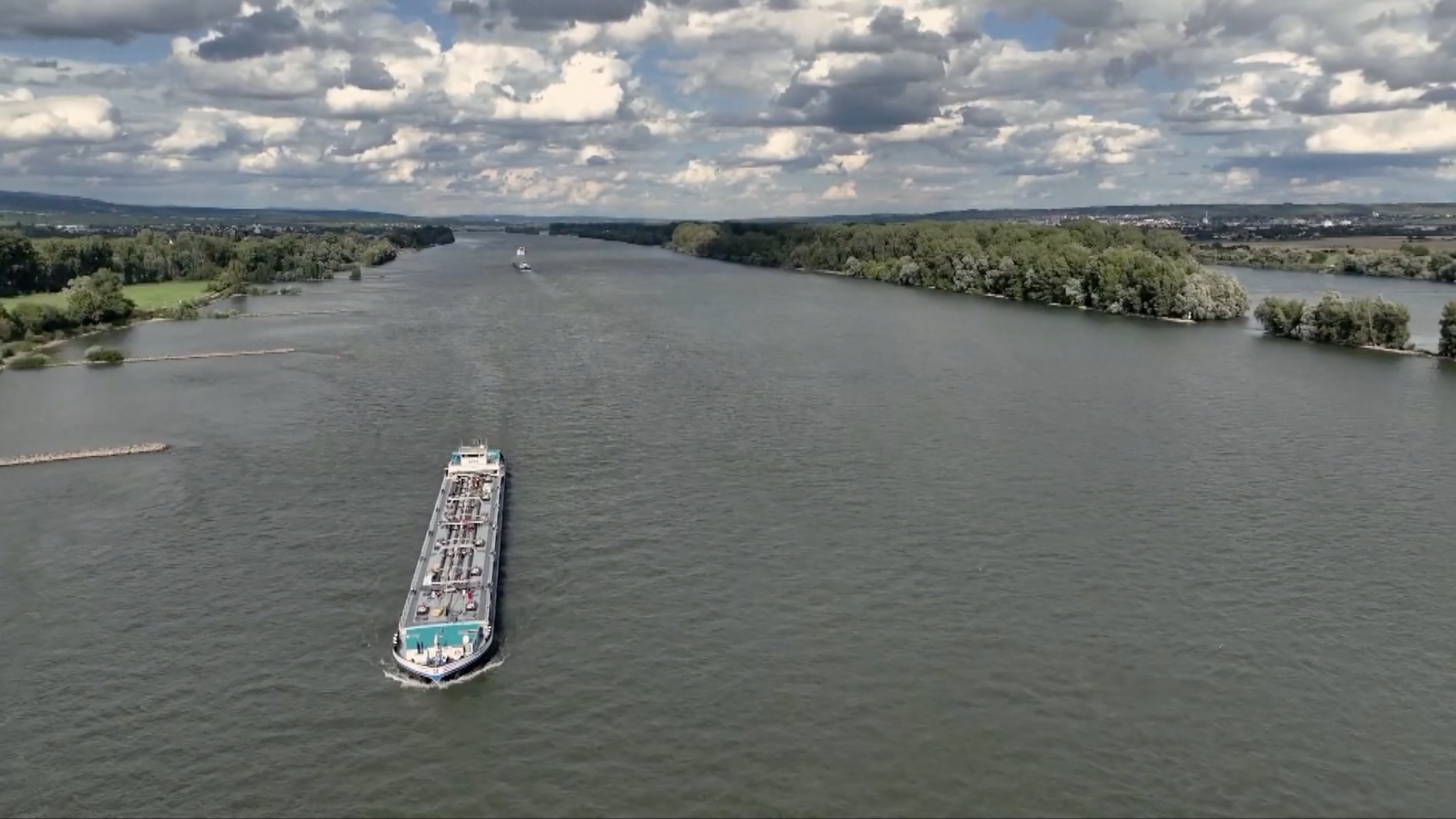The high temperature and drought this summer have conspired to lower the water levels of the 1,200-kilometer Rhine River, which has disrupted the shipping industry and dragged down the German economy.
The Rhine is Germany's main commercial artery, where hundreds of millions of tonnes of raw materials such as coal, crude oil, grain and ore are transported each year.
The river section near the town of Kaub is the shallowest, so it is a critical part for the watercourse. And now in the dry season of the year, the river water has retreated to more than ten meters from the bank.
For safety concerns, the river needs to be at least 132cm deep for cargo ships to sail along it with full load.
But since 2018, the river has experienced a 60-day dry season every summer, and this year the water level has fallen below 100cm twice.

Roberto Spranzi, president of the Deutschen Transport Genossenschaft Binnenschifffahrt EG (DTG) which manages more than 100 freighters, said with low water levels, their ships had to sail with less load so as not to interrupt transport.
"A ship can transport 3,000 tonnes of cargo at normal water levels. But when the water level is low, it can only ship 1,000 tonnes or less, which means transporting the same amount of goods needs three or four times as many cargo ships. The downside is a rise in the customers' transportation costs," he said.
The Kiel Institute for the World Economy predicts that if the water level of the river's Kaub section remains below 78cm for 30 consecutive days, German industrial production will fall by one percent.
"In the past few years, we found the intervals between low water levels of the Rhine River are getting shorter. The government must take measures to deal with this as the Rhine River is a federal waterway and the federal government has the responsibility to maintain the infrastructure of our waterways. It's a federal matter. But the government is acting too slowly. The government's action efficiency is too slow," Spranzi said.
As the hot weather continues, Germany's Federal Waterways and Shipping Administration expects the water level of the Rhine to continue dropping.
(If you have specific expertise and want to contribute, or if you have a topic of interest that you'd like to share with us, please email us at nature@cgtn.com.)